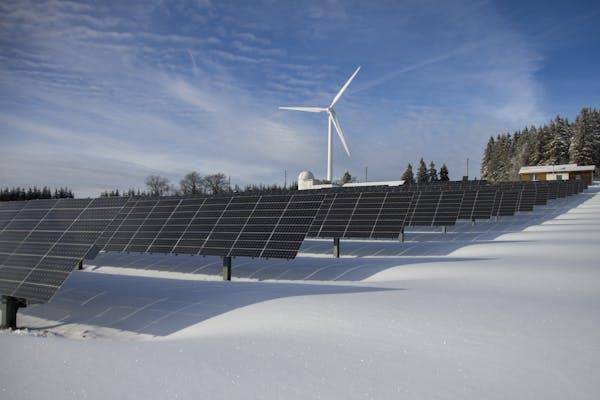The energy landscape today is rapidly evolving. This calls for reliable and efficient energy storage solutions. As the world strives towards a sustainable future, the intermittent nature of renewable energy, like solar and wind energy, is posing a challenge. The solution to this is energy storage. So, if you are planning to switch to Ontario renewable energy for solar power, here is what you should know about solar energy storage.
Advantages of Storing Solar Energy
Storing solar energy is important if you want to get the most out of your Ontario solar energy systems. It can help in cost savings, efficient energy grids and reduced fossil fuel emissions. Let us see more benefits of strong solar energy.
- Balancing electric loads: If not stored, electricity has to be used the moment it is generated. Storing this energy allows the extra regeneration to be stored for peak use. As far as Ontario’s renewable energy is concerned, storing the extra power allows the lights to stay on at night or when the wind stops blowing, in the case of wind energy. Energy storage allows the energy reservoir to be charged in case the generation is high and demand is low. It can then be released when generation diminishes and demand grows.
- Energy resilience: Since the energy grid is vulnerable to disruptions, solar power storage can create a protective shield during such events.
- Filling the gaps: Short-term solar energy storage allows consistent energy flow, especially during brief disruptions in generators like routine maintenance and passing clouds.
- Reduced carbon footprints: Energy storage gives you more control over the amount of solar energy you use. Battery storage reduces your carbon footprint, especially in areas where fuel-based utility power is used. Large storage batteries can help any appliance in your home turn into a solar-powered device.
- Saving electricity costs: Battery storage can help lower your utility bills. Though you may not be compensated enough for excess energy sent to the grid, additional solar power stored throughout the day can be discharged from a battery on cloudy days or at night instead of being used for utility consumption.
Commercial Solar Energy Storage
Commercial solar energy storage is more expensive than residential storage. However, businesses usually have bigger budgets than individual households. Mechanical and thermal storage are viable options for commercial Ontario solar energy storage. Although the costs are high, it helps utilities to keep up with peak energy demand. Commercial solar energy storage can also be done through grid energy storage with next-generation batteries, pumped hydro, and compressed air.
Home Solar Energy Storage
Home solar energy storage has a lot of benefits like cost savings, resiliency and decentralisation of electrical production. The most common form of home solar energy storage is lithium-ion batteries. They are cheap, suitable for a wide range of needs, and low profile. Saltwater batteries and lead-acid batteries are also widely available for residential use. Home back batteries allow homeowners to save energy during high production and low demand times. It can give homeowners uninterrupted energy and cost savings.
Wrapping Up
Energy storage for renewable energy plays a crucial role in shaping a sustainable energy future. It addresses the challenges of intermittency, reducing environmental impact, and enhancing grid stability. Solar energy storage offers a way to a cleaner, efficient, and equitable energy system.
Featured Image Source: https://images.pexels.com/photos/433308/pexels-photo-433308.jpeg?auto=compress&cs=tinysrgb&w=600
